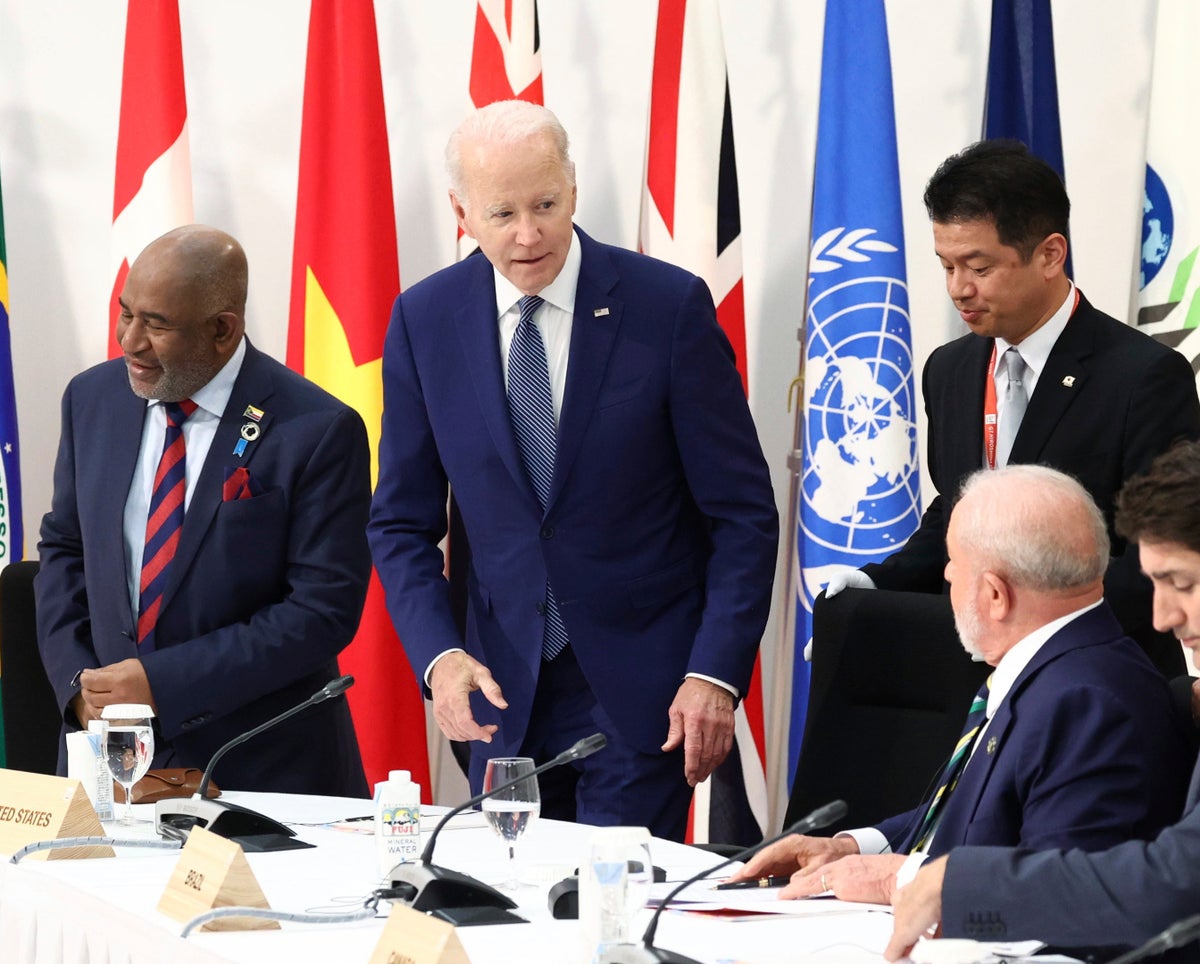
Leaders of the Group of Seven wealthy democracies are joining their counterparts from other countries during their summit in Japan in an effort to expand the G7’s sway and to include voices from the so-called Global South.
From South America to South Asia, Ukraine to the South Pacific, the guests represent a carefully considered choice of countries including big emerging economies like Australia, Brazil, Indonesia and India and smaller ones like the Comoros and Cook Islands.
Critics accuse the G7 of being an “elite club” of countries whose relevance as global leaders is being eclipsed by up-and-coming powers. By including leaders of big but less wealthy democracies like India and Brazil, Japan and the other G7 countries aim to amplify their consensus on vital issues like the war in Ukraine, China's growing assertiveness, debt and development issues and climate change.
It's something of an odd assortment, but there's a method to the mixture.
South Korea is a key ally of the U.S. and Japan, with a huge stake in regional security and stability. The Comoros, an archipelago off the coast of East Africa, is currently chairing the African Union — a vital connection to a continent that increasingly is the focus of rivalry between Western democracies in China.
The Cook Islands is heading the Pacific Islands Forum — another link to a strategically important region.
Japanese Prime Minister Fumio Kishida has said another aim is to highlight the importance of the Global South developing countries in Asia, Africa and Latin America. As the only Asian G7 member, Japan has a special role to play in that regard, said Yuichi Hosoya, a professor of international politics at Tokyo's Keio University.
In a joint statement issued Saturday, the G7 leaders underscored their commitment to helping countries cope with debts that have mounted to perilous levels during the pandemic and war in Ukraine. They also reiterated their aim to pull together up to $600 billion in financing for projects to develop infrastructure such as railways, clean energy and telecommunications in developing nations.
Kishida convened a session of G7 leaders and guests that included executives from Citigroup and other private partners to discuss how to get more done — and offer an alternative to financing from China with investments in a “transparent and fair manner.”
“We're just getting started. Together we have a lot to do to close the infrastructure gap,” President Joe Biden told the gathering, pointing to a railway project in West Africa that he said would improve food security and supply chains.
“Let's commit to showing that democracies can deliver,” Biden said. “We have to deliver.”
Ursula von der Leyen, president of the European Commission, said the effort might raise the amount of investment from “billions to trillions.”
“We want to put a better offer on the table,” she said.
A key aim of including a broader set of countries in the annual G7 summit is to help build agreement ahead of the annual summit of the broader Group of 20 major economies in India later this year.
“Important global issues cannot be solved” without the other countries, Hosoya said. “Without the support coming from the countries in the Global South, the G7 cannot, unlike before, effectively respond to the most pressing issues in the world.”
Indonesia was host of the G20 last year and Brazil will host the meetings in 2024. All have complicated relations with China and Russia and the G7 is seeking support for its efforts to push Russia to end the war. India has abstained several times from voting on U.N. resolutions against Moscow and has increased its imports of Russian oil, while calling for a diplomatic resolution to the conflict.
Brazil and India belong to the so-called BRICS group of developing nations, that also includes China, Russia and South Africa. Brazilian President Luiz Inácio Lula da Silva recently visited China to strengthen ties with its biggest trade market.
Vietnam is an increasingly important trading partner for the U.S., Japan and other G7 nations and one of the region's fastest growing economies. Like Japan, it has territorial disputes with China.
“At a time when the world is heading toward divisions, one of the most important issues is to figure out how to steer the world in one direction and regain cooperation and Japan is expected to play an important role as a bridge between G7 and the so-called Global South countries including the G20,” said Akio Takahara, a professor at University of Tokyo.







